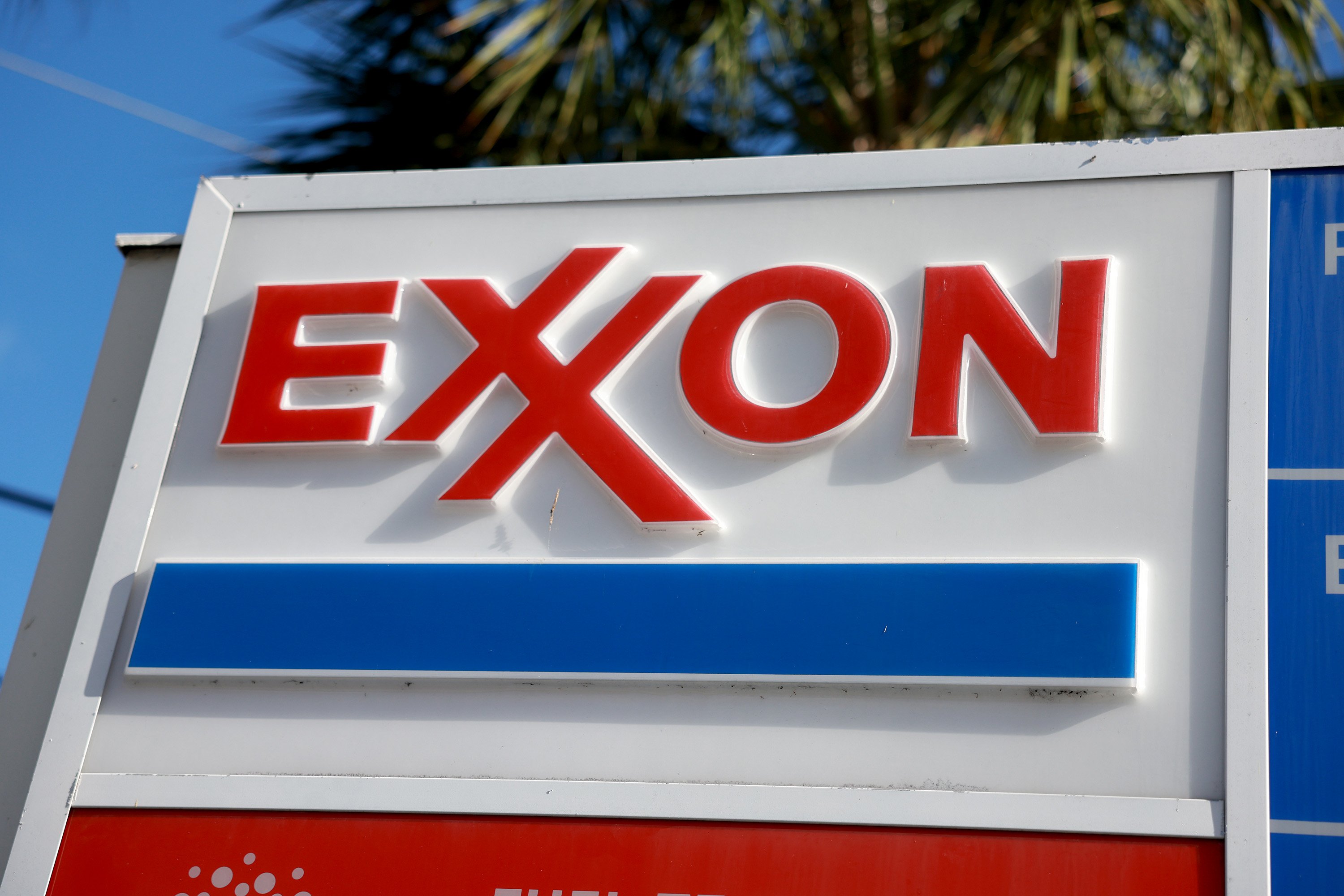Integrated energy giants Royal Dutch Shell (NYSE: RDS-B) and Total (TOT +0.00%) have both made significant investments in the electric- and renewable-power spaces, preparing for a future with less carbon-based fuels. ExxonMobil (XOM +0.02%) isn't following them down this road, instead redoubling its efforts on oil, natural gas, and the products they are turned into. Why is Exxon making the strategic decision to double down on carbon fuels, and is this choice a big mistake?
The decisions being made
Shell has explained that it hopes to create an electricity business that will rival its oil, natural gas, and chemicals operations in size. It plans to ramp up spending on the electric side of its business to as much as $2 billion to $3 billion a year by 2025. It is already starting to build scale in the space with acquisitions like an electric-car charging business, a U.K. utility (rebranded as Shell Energy), renewable-power assets, and an electric storage company.

Image source: Getty Images
Total isn't far behind. The French oil giant owns a controlling stake in solar panel manufacturer SunPower, and in 2018 bought 75% of European utility Direct Energie. Clearly, electricity and renewable power are important to this energy giant's future as well. The goal of both companies is to prepare now for a future in which carbon-based fuels like oil and natural gas are less important. Based on global warming concerns, it appears they are making an intelligent allocation decision.
Exxon has chosen a different course by sticking to its focus on oil and natural gas, with big plans to expand its operations in the near future. In fact, it intends to spend as much as $35 billion a year over the next few years to develop new production in the upstream sector and increase its scale in its downstream chemicals and refining businesses. Management has actually increased its spending plans since first laying out its intentions in 2018.
So why is Exxon going against the grain here? From the outside, it looks like a mistake, especially since competitors are clearly hedging their bets.
The world will need oil
Exxon has decided to keep focused on oil and gas because it believes that the world will continue to need material amounts of the fuels for decades to come. The company expects demand to grow slightly between 2016 and 2040. The rate of increase won't be huge, but it doesn't expect demand to fall. A drop in oil demand is what is being projected based on the global push to keep average temperatures from rising no more than two degrees Celsius.

ExxonMobil's strategic blueprint. Image source: ExxonMobil
There are actually two bets hidden within this decision. The first is that the world won't be able to meet that 2 degree mark, which so far seems like a decent choice. In fact, most countries are falling short of the goals set out in the Paris Climate Accord that created the 2 degree target. The United States notably pulled out of that accord. Simply put, Exxon believes oil and natural gas are too integral to the world to simply jettison them from the energy picture.
But even if the 2 degree goals are somehow hit, Exxon isn't all that worried about its choice. That's because oil and natural gas are depleting assets. Once you pull a barrel of oil out of the ground, it is gone forever. Eventually, even the most prolific oil plays run dry. You need to continually replace the oil and natural gas you use with new sources if you want to maintain production over time.
Hitting the 2 degree goals would lead to slower growth for natural gas and an outright decline in demand for oil by 2040. When you pair demand with supply, however, you see that the world will still need to spend huge amounts to find new production because of the effect of depletion. The numbers are big either way. In Exxon's model, the world needs to find 550 billion barrels of new oil supply by 2040, with the 2 degree goals dropping that down to a still-material 370 billion barrels. The same general story holds true in natural gas, except that overall demand grows even under the 2 degree scenario. So even if the world can come together on the global warming issue, huge new supplies of oil and gas will be needed. And companies like Exxon will continue to have ample opportunities to invest in carbon-based fuels.
To be completely fair to Exxon, it isn't actually ignoring the global push to limit carbon emissions. It has been investing in technology to create biofuels through the use of algae. Although it could be characterized as a moonshot, the hope is that these algae-based biofuels will allow the company to continue using the infrastructure it has today instead of starting over in a wholly new business. Once again, the company's controlled approach to change is on clear display.
Conservative and strong
Exxon has a long history of being conservative (note that long-term debt is a tiny 10% or so of the capital structure). It doesn't generally make dramatic business shifts. Looked at this way, sticking to its knitting makes sense since it appears that oil and gas will be vital sources of energy for at least the next two decades. That remains true even in the best-case scenario for carbon reduction.
And there's another fail-safe here. With such modest debt and enough cash flow to invest $35 billion a year in its oil business, Exxon could easily afford to buy a large utility if its energy outlook proves misguided. So it looks to be positioned just fine for the future, even in a worst-case scenario for oil.






